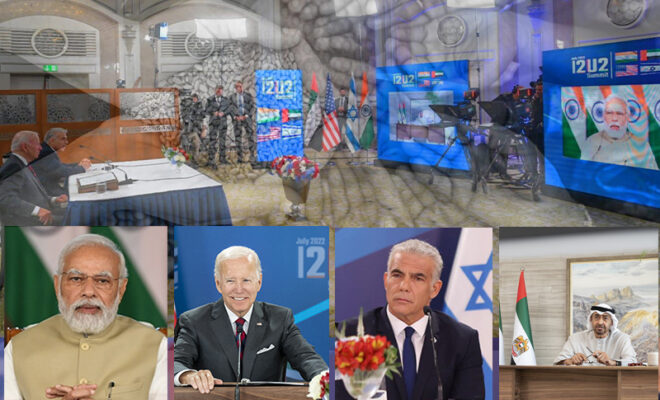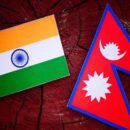I2U2 Summit: India To Solve Food Crisis With Several Food Parks

Several important points have been discussed in the I2U2 summit including the ‘worldwide food crisis.’ Israel, US and UAE are ready to invest in India for several food parks.
This I2U2 Summit became the first top-level meeting of I2U2. It was attended by Prime Minister Narendra Modi, Israeli PM Yar Lapid, UAE President Sheikh Mohamed bin Zayed Al Nahyan and US President Joe Biden. Important points including the food crisis were discussed.
The four I2U2 members—India, Israel, the United Arab Emirates, and the US—agreed on the group’s economic agenda during a summit on Thursday.
In this discussion, it was decided that many integrated food parks would be built in India at a cost of $2 billion in order to prepare for the possibility of a worldwide food crisis.
The UAE will make this investment, and it will be crucial in helping Israeli and US businesses satisfy their technical and other fundamental needs.
In a similar vein, it has been decided to build a 300 MW battery storage system in Gujarat using renewable energy (solar and wind).
$330 million will be provided by the US Trade & Development Agency for a feasibility report on this.
According to a joint statement released by the four nations, India will be aided in becoming a worldwide hub for renewable energy with the aid of such initiatives.
4 Countries Leaders Participated In The Meeting
I2U2 held its initial top-level meeting here. PM Narendra Modi, PM Yar Lapid of Israel, Sheikh Mohamed bin Zayed Al Nahyan of the United Arab Emirates, and US President Joe Biden all attended.
On October 18, 2021, these countries’ foreign ministers met and came up with the idea for the organization.
It is clear how serious the four nations are from the premise that President Biden organized it on his eagerly anticipated trip to Israel and the Gulf states.
The aim of this program is to find long-term strategies given the challenges of complete economic security, especially in the areas of food and energy security, as is evident from the joint declaration and the separate briefings given by the foreign ministries of the 4 nations after the meeting.
Along with the US, Japan, and Australia, India is already a member of the Quad (a four-nation organization) in the Indo-Pacific area, and it is currently collaborating with the US on a larger agenda in the western Gulf region as well.
Keep Reading
All three I2U2 nations already have strategic partnerships in place with India.
Our Partnership A Great Model Amidst Global Uncertainties: PM Modi
In his speech, PM Modi stated that this is actually a gathering of key partner nations. We are close friends and have a variety of hobbies.
In the initial meeting itself, we established a constructive agenda. A road map has been created for it after various areas have been identified. Modi added that in light of the uncertainty facing the world, our cooperative framework serves as a good example of real cooperation.
Modi expressed absolute trust that the four nations would significantly contribute to global economic growth, food and energy security, and security.
Later, Foreign Secretary Vinay Kwatra reported that during the discussion, Modi stressed the need for more cooperation between the four nations in the fintech industry and suggested that all nations accept payments made through UPI, an Indian-built payment gateway.
Gujarat and Madhya Pradesh Will Be 1st Food Forks
Along with fintech, the four nations have pledged to collaborate in the fields of water, energy, transportation, space, health, and food security. All of these industries will encourage joint investment via the private sector.
The food fork has been chosen for the states of Gujarat & Madhya Pradesh, according to Kwatra. From this point forward, a greater emphasis will be placed on the producers and exporters of food items including rice, bananas, spices, and onions to other nations.
Solution To The Current Food Supply Crisis
The food park will seek to enhance foodgrain output in India, quadruple Indian farmer incomes, and guarantee food security in the Gulf region. Israel’s technological advancements in this area will be crucial.
In addition to the UAE’s $2 billion investment, significant roles will also be played by Israeli and American businesses.
Process will be completed to standardize the quality criteria for food grains and to remove restrictions on the commerce of food among the member nations.
It can end the current food supply problem affecting the entire Gulf region from South Asia.



